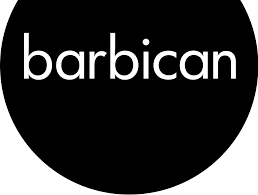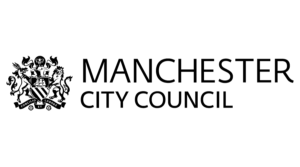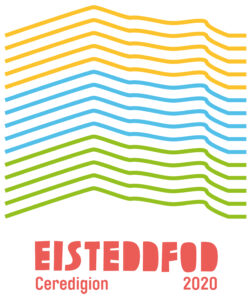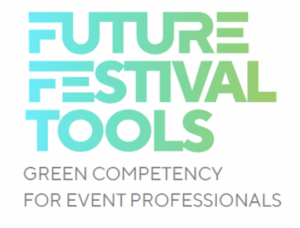In this end-of-year round-up, I reflect on the big green themes of 2020 and industry developments around sustainability, and look forward to 2021. The blog is packed with references, and all the links can be found at the end of the text, so you can go into the New Year feeling up-to-date and inspired about green issues in our industry.
It’s been quite a year – of concern, hardship, uncertainty, pivoting, hand-washing, reflection, Black Lives Matter, financial admin and grant applications, dodgy haircuts, erratic weather and raging fires, the longest ever period of UK grid energy without coal, and alarming reports about the decline of nature. Phew. On the plus side, Trump hasn’t been elected – a vital step for multilateral global action on climate – and we have experienced widespread collaboration and camaraderie in the events industry in the face of challenge. We have really pulled together, inadvertently creating the networks and culture required to take serious and effective industry-wide action on the climate crisis. In the words of Music Declares Emergency, there is ‘No Music on a Dead Planet’, and so whilst we have been rightly focussed on our jobs, each other, the survival of businesses and industry, we also mustn’t take our eye of the ball – the blue and green one – of the bigger picture.
Big Green Themes of 2020
Circular economy, although not a brand new idea, is emerging as nothing less than the new epoch for humanity in my opinion, rendering the fundamental assumptions of traditional economic theory misguided in its complete ignorance of ‘externalities’ – social and environmental – and the finite reality of our resources, AKA the planet. It’s gaining traction globally in policy-making circles, and in the events industry too. I’m excited about a Dutch Government-funded Circular Festivals project that has brought together 20 leading green festivals from across Europe to spend three years exploring and designing a circular model for festivals. If you haven’t already, get to know at least the basics of circular economy. The place to start is founder Kate Raworth – see video and links at the end of this blog.
Another big idea that has firmly taken root this year, and a personal favourite, is Rob Hopkin’s explanation of climate, health and moral crises as a ‘failure of the imagination’. He warns in his book From What is to What If: Unleashing the power of imagination to create the future we Want, that allowing creativity and imagination to dwindle is potentially fatal as we face increasingly complex problems. For me this highlights the valuable role that the arts and festivals can play, not just in providing spaces, or ‘laboratories’ to explore solutions, but fundamentally holding space for creativity and conversations to imagine the future. We must create a break from the fast-news cycle and social media and provide places not just to dance, but to breathe, think, exchange ideas, and be inspired.
No end of year blog of 2020 could or should be complete without reference to the Black Lives Matter movement. The extent of systemic and institutionalised racism in our societies has been laid bare once again. Also revived is an awareness about how racial justice and climate justice are inter-woven. It’s common knowledge that the mostly non-white global poor have borne the brunt of climate changes. What is new is a growing recognition that tackling inequality is a fundamental part of solving climate change, in that climate change is a result of power structures, inequality, disenfranchisement of the majority.
In the outdoor festival industry, there have been some signs of waking up on inequality. Many festivals took part in the social media blackout in support of BLM, and a new organisation – Without Exception – launched this year that aims to ‘bring people together to make the UK music festival industry a more diverse, equal and inclusive place to work’. Shambala Festival has an impressive anti-racist resources area on their website here for anyone interested to learn more.
What are the big green themes for you this year? Please comment on my LinkedIn post for this article to let me know, share ideas here.
Hope and action in a lost year for live events
Despite being a devastating year for the live events, organisations dedicated to sustainability within our industry have kept busy and continued to develop resources, foster community, and launch tools to support more sustainable practices ready for then there is a return to something like normal.
Vision:2025 launched their second edition The Show Must Go On: Environmental Impact Report for the Festival and Outdoor Events Industry and A Greener Festival became recognised by as a professional body entitled to accredit event sustainability courses at UK Universities. The Sustainable Events Alliance (SEA) took a leading role in tackling waning confidence in reusables, publishing the Global Best Practice Guidelines for Reusables at Events.
In December Julies Bicycle lead on an industry submission on sustainability to the DCMS Select committee on The Future of Festivals, a hugely exciting first in terms a direct dialogue with government about sustainability. Some of the challenges we face, and our opportunities to reduce impacts, are beyond the scope of our industry’s influence alone, something Massive attack addressed in their video – Massive Attack x The Good Business Festival x Tyndal Centre for Climate Change Research. Their [ongoing] research is highlighting the need to think at scale and engage local authorities and other stakeholders in tackling issues such as touring and event management impacts.
Ecolibrium, a charity set up by the live events industry to tackle the environmental impacts of travel, has continued to grow its community and resources, diversifying into digital events, and launching an app. The ecolibrium community of over 50 UK festivals, events, suppliers, and artists have now balanced the equivalent of 13 million travel miles with, an unprecedented achievement in the industry.
Celebrating Leadership
We have met, celebrated and had personal insights from some of the outdoor event industry’s green leaders in Vision:2025’s new monthly Industry Green Leaders Q&A, launched in May. So far featuring; Jenny Hamada, Director of Events AEG Europe; Kaye Dunnings, Creative Director Shangri-La and Lost Horizon, Andy Fryers, Sustainability Director Hay Festival; Marie Sabot, Associate Director of We Love Green, and many more, I think its well worth a look.
Extinction Rebellion continued to play a role in public life, holding two weeks of climate protests in September across major cities culminating in blockading Murdoch’s printing presses. And last month, the Fridays For Future youth movement launched Climate Live – simultaneous events planned in over 40 countries that aim to engage young people in taking action. They launched with the question to world leaders – “Can you hear us yet?”. It’s so encouraging to see this youth movement find its feet and grow and I hope we can do everything possible as an industry to support them.
Massive Attack definitely were heard with the release of their visual EP about climate change, ‘Eutopia – Massive Attack x Algiers featuring Christiana Figueres’ (former executive secretary of the United Nations Framework Convention on Climate Change – UNFCC – and the Paris Agreement).
Looking forward
There is some optimism about the possibility of a summer events season, but if events do go ahead, I hope we can re-establish the momentum around plastic reduction, left tents and carbon emissions that we experienced in 2019?
The Vision:2025 Outdoor Events Industry Green Survey (2020) reports that despite the pandemic, event organisers remain committed to environmental action, with one in three saying their experience of this year has made environmental sustainability a higher priority. However, there is, not unsurprisingly, widespread concern about how the financial fallout from this year’s season will impact events’ ability to invest in environmental initiatives, whether longer-term shifts (like audiences being wary of public transport) will harm chances of progress, and how to plan for continued uncertainty.
With a short window of opportunity left to take decisive and meaningful action on climate, and with the postponed COP26 next year in Glasgow, 2021 will be an important year for action in the UK, an opportunity to show leadership and model #BuildBackBetter. The Government’s 10 Point Plan for a Green Industrial Revolution promises a Net Zero Taskforce to accelerate a transition to clean energy and transportation, and to provide policy and funds to enable this.
The recent Julies Bicycle letter to the DCMS Select Committee asks for support for our industry in several ways to enable a shift: A roadmap for the decarbonisation of Non-Road Mobile Machinery (i.e. generators that outdoor festivals rely on for power); better clarity and standards on bioplastics and compostable packaging; creation of a central pot of green recovery innovation seed-funding for environmental action-research projects and technology; creation of a central government ‘public green space electrification’ infrastructure fund to enable more event organisers to access the national grid.
I hope for a time in the near future when minimum environmental standards form part of the Premises Licensing process and are considered by SAG, and that there is effectively a ‘chair at the table’ for nature. This may be unpopular to some – another set of standards or requirements to adhere to – but how else is significant change achieved at scale?
Until such time as we have robust policy or funding support for transition, we rely on the conviction and leadership of a an (increasingly) minority of festival organisers and suppliers. With so many free-to-access resources available to organisers, and the backdrop of the momentum we experienced in 2019, I feel optimistic that events can play their part in imagining the future we want, and taking practical steps toward it.
Happy New Year everyone, and here’s to a better year than 2020, for events, social equality and the environment.
References and Links in Order of Appearance
- Music Declares Emergency – https://www.musicdeclares.net/gb/
- Living Planet Report, WWF (2020 )- https://www.wwf.org.uk/living-planet-report
- Extinction: The Facts, BBC – https://www.bbc.co.uk/iplayer/episode/m000mn4n/extinction-the-facts
- The Show Must Go On Report: Environmental Impact Report for the Festival and Outdoor Events Industry, Vision:2025 (2020) https://www.vision2025.org.uk/report-download
- Global Best Practice Guidelines for Reusables at Events, SEA (2020) https://thrive.sustainable-event-alliance.org/global-reusables-at-events-hygiene-standard/
- ecolibrium – https://ecolibrium.earth
- Eutopia, Massive Attack (2020) https://www.massiveattack.co.uk
- The Good Buisness Festival – https://thegoodbusinessfestival.com/event/massive-attack-x-tyndall-centre/
- Vision:2025 Green Leaders – https://www.vision2025.org.uk/news
- Circular Economy links – https://www.kateraworth.com / https://www.ellenmacarthurfoundation.org
- From What is to What If: Unleashing the power of imagination to create the future we Want, Rob Hopkin’s (2019)
- Without Exception – https://www.withoutexception.org.uk
- Shambala Festival’s anti-racist resources – https://www.shambalafestival.org/adventures/black-lives-matter-anti-racism-resources/
- Industry Green Survey 2020 Results – https://www.vision2025.org.uk/news-1/vision-2025-outdoor-event-industry-green-survey-2020-reveals-priorities-and-sustainability-plans-for-2021
- The UK Government’s Ten Point Plan for a Green Industrial Revolution (2020) – https://www.gov.uk/government/publications/the-ten-point-plan-for-a-green-industrial-revolution
























